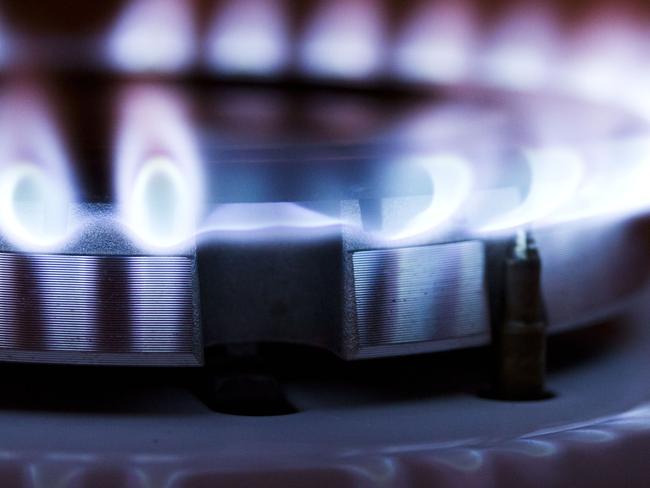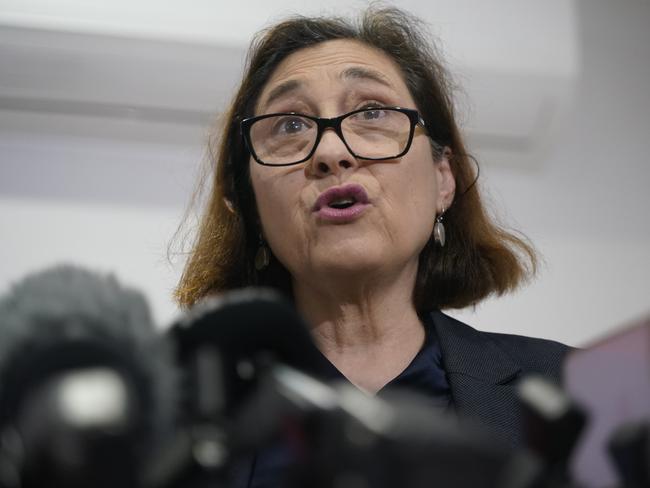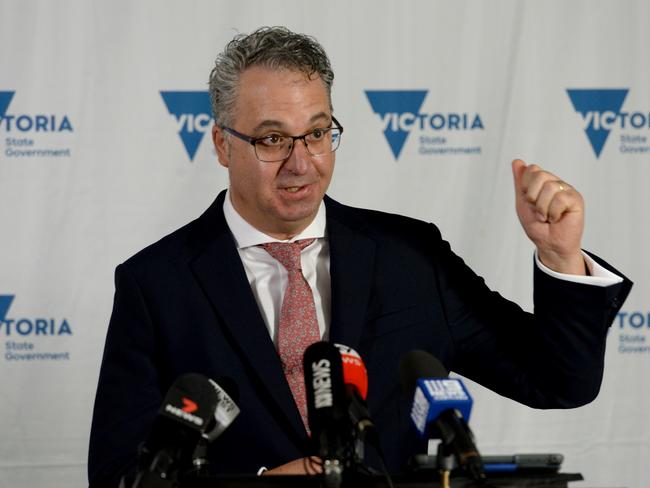Allan govt outlines how it will phase out gas in Victorian homes under controversial road map
Gas hot water systems or heaters that break down in Victorian homes will soon have to be replaced by electric appliances in the Allan government’s plans to phase out gas.
Victoria
Don't miss out on the headlines from Victoria. Followed categories will be added to My News.
Households face a $5bn bill to switch major appliances to electric models under the Allan government’s plan to phase out gas.
A new report on the government’s plan to substitute gas for electricity in most properties over two decades shows upfront costs average $2400 for the 2.1 million homes and businesses using gas.
This is under the government’s “preferred” substitution model, which allows property owners to wait until heaters and hot water systems die to make the switch, and excludes cooktops, existing commercial buildings, and industrial, agricultural and manufacturing facilities.
A fifth of homes that would likely need electrical upgrades would be hit hardest, or an average $4700 whack for new switchboards, while some would save money by ditching gas connection fees.
The “payback” on those facing upfront costs would come within three to 13 years through lower bills, the report says, given gas prices are expected to stay high amid supply challenges.
Long-term benefits would far outweigh the costs, according to modelling by consultants at Deloitte – but which the government has refused to release.

The gas substitution road map was created to wean Victoria off gas, in order to meet a target of creating net zero emissions by the year 2045.
As Victorians battle a major cost-of-living crisis, the report says upfront charges “could be a challenge for some households”.
“Households may have to adjust or forgo spending on other items or delay the replacement in order to save sufficient funds to afford the upgrade,” it says.
“Noting these potential concerns, potential exemptions for existing residential properties have been proposed and will be further explored through the consultation process.”
Exemptions could be given to low income households or apartment blocks where upgrades would be most costly.
Opposition energy spokesman, David Davis, said the looming rules, which could start as early as 2026, would be a “king hit for families”.
“Being forced to move by Labor from gas to electricity will see massive upfront costs that will absolutely clobber the most vulnerable,” he said.
Industry and business groups also savaged the plan, with Victorian Chamber of Commerce and Industry boss Paul Guerra likening the state’s gas policies to a “plate of scrambled eggs”.

Others said there was widespread confusion about the gas substitution road map, which was updated in the same week Premier Jacinta Allan promised to boost supplies by fast-tracking gas project assessments.
Minister for Energy and Resources Lily D’Ambrosio said that gas was a part of the state’s energy transition away from coal-fired power, but that supply was dwindling and prices were rising.
“That’s why we are securing new supply and helping households and businesses switch to electric appliances, slashing their energy bills and reducing demand,” she said.
“This process is a genuine conversation and way to hear the views of Victorians.”
The report on the gas substitution road map, which is called a regulatory impact statement, also refers to workforce challenges given how many plumbers and electricians would be required to retrofit households and businesses.
Airconditioning and heater manufacturer, Seeley International, said the policy was “economic vandalism” and cast doubt on benefits included in the report such as how much money would be saved by switching from gas heating to electric versions.
Environmental groups have backed the plan to phase out gas, arguing it is a fossil fuel that will worsen climate change.

But social services groups have warned that the cost of ditching gas should not be borne by poorer households who can’t afford to upgrade homes.
Australian Industry Group Victorian director, Tim Piper, said there was concerns around a potential start date in 2026 which he labelled “a non-starter”.
“This is a huge change to the household and commercial appliance markets, and suppliers need good time to prepare,” he said.
“Electrification makes financial sense for some energy users while renewable gases are essential for others. The state runs big risks if it steps too hard on the accelerator, however.”
The new report says although modelling used a 2026 start date “this is not government policy and a commencement date for the proposed regulations has not been finalised”.



